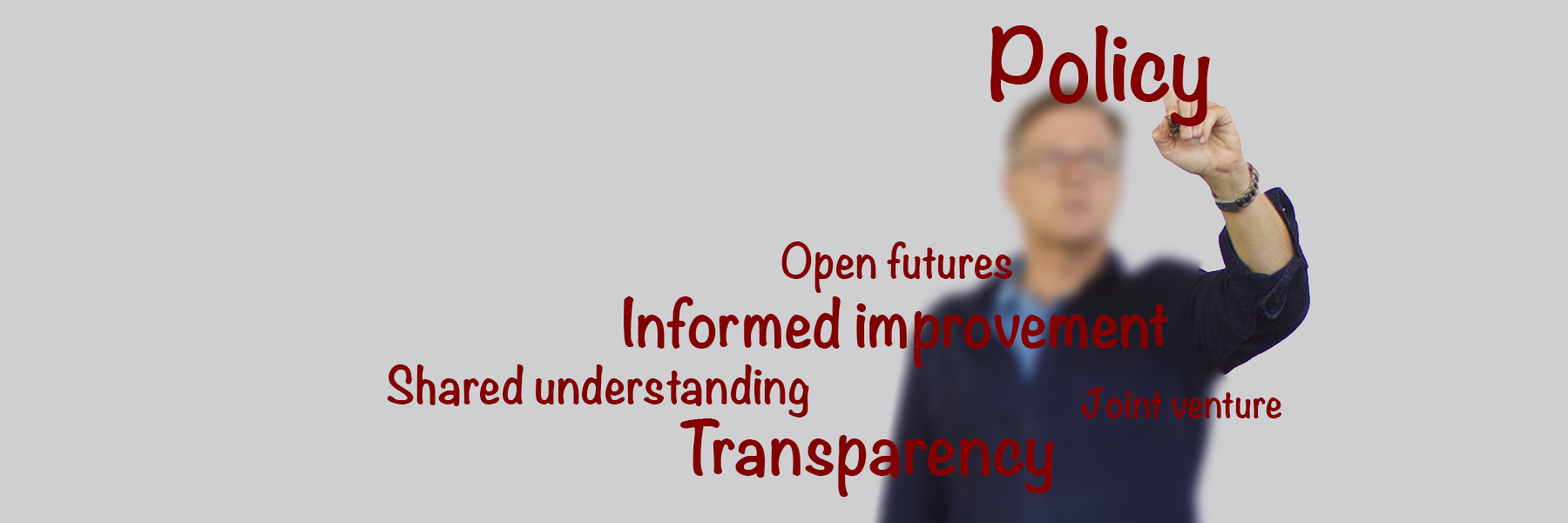Sample Policies

New and ubiquitous student data oblige higher education organizations to continually evolve use and messaging policies. Here are two documents that might be used as starting points for organizations drafting their own policies.
DRAFT General Policy for Responsible Use of Student Data
[Name] is a learning organization. Our faculty, researchers and staff are jointly engaged in improving learning opportunity at [name] and advancing relevant knowledge worldwide. The [University/College] is committed to using data to improve our own educational practice and to sharing what we learn as knowledge grows. [Name] also is committed to honoring the discretion, privacy, and future opportunity of its students.
Because it recognizes that the collection, use, and administration of student data are ethically complex, the [University/College] maintains formal mechanisms for governing these activities. While these mechanisms vary across [name’s] different organizational units, they are always informed by the following principles:
- Shared understanding. Data describing student interactions with [name] are joint ventures. Instructors, administrators, students, and third-party vendors all contribute to the process of data production. All of these parties deserve to have a shared understanding of the basic purposes and limits of data collection. Shared understanding is maintained by clear, brief, and explicit messaging to students about the nature of [name]’s data collection systems; the provision of detailed information and consultation about data collection, administration, and use upon request; common contractual language between [name] and all relevant third-party vendors; and continuous consideration of student messaging and data use protocols throughout the [University/College].
- Transparency. Clarity of process and evaluation are hallmarks of humane education systems, and must be maintained even while those systems grow more complex. Students are entitled to clear representations of the nature and extent of information describing them that is held in trust by [name] and relevant third-party organizations. Students are entitled to explication of how they are being assessed, whether by human beings, machines, or hybrid protocols. Students also are entitled to request that assessments be reviewed through a clearly articulated governance process.
- Informed improvement. [Name] is a learning organization. We study student data in order to learn how our own educational environments can be made more effective and to contribute to the growth of relevant knowledge generally. Any and all research with student data is governed by the [University’s/College’s] science governance protocols.
- Open futures. Education should enable opportunity, not foreclose it. [Name’s] instructional, advisement, and assessment systems must always be built and used in ways that enable students to demonstrate aptitude, capacity, and achievement beyond their own or others’ prior accomplishments. [Name] and its personnel engage in continuous consideration of how our educational environments equitably enable humane learning and academic progress.
DRAFT Sample Student Messaging
Welcome to our learning [university/college].
[Name] is committed to improving learning opportunities and advancing scientific inquiry. The knowledge we glean from students’ engagement with our instructional programs is important to both pursuits.
Your contribution: [Name] encourages scientific inquiry to improve educational opportunity both here and worldwide. Our physical campus and digital platforms are laboratories sustained and enriched by our students’ learning activity and interactions with them. When interacting with [name]’s programs, you also are providing data for research. Our inquiry is ongoing. Learn more about it here [link to research site].
Our commitment: [Name] is committed to research as a transparent enterprise. We will use our research findings to continually improve [name]’s instructional offerings and contribute to the growth of knowledge worldwide.
author: Mitchell Stevens

